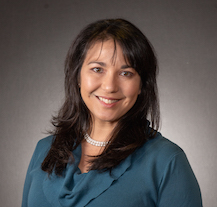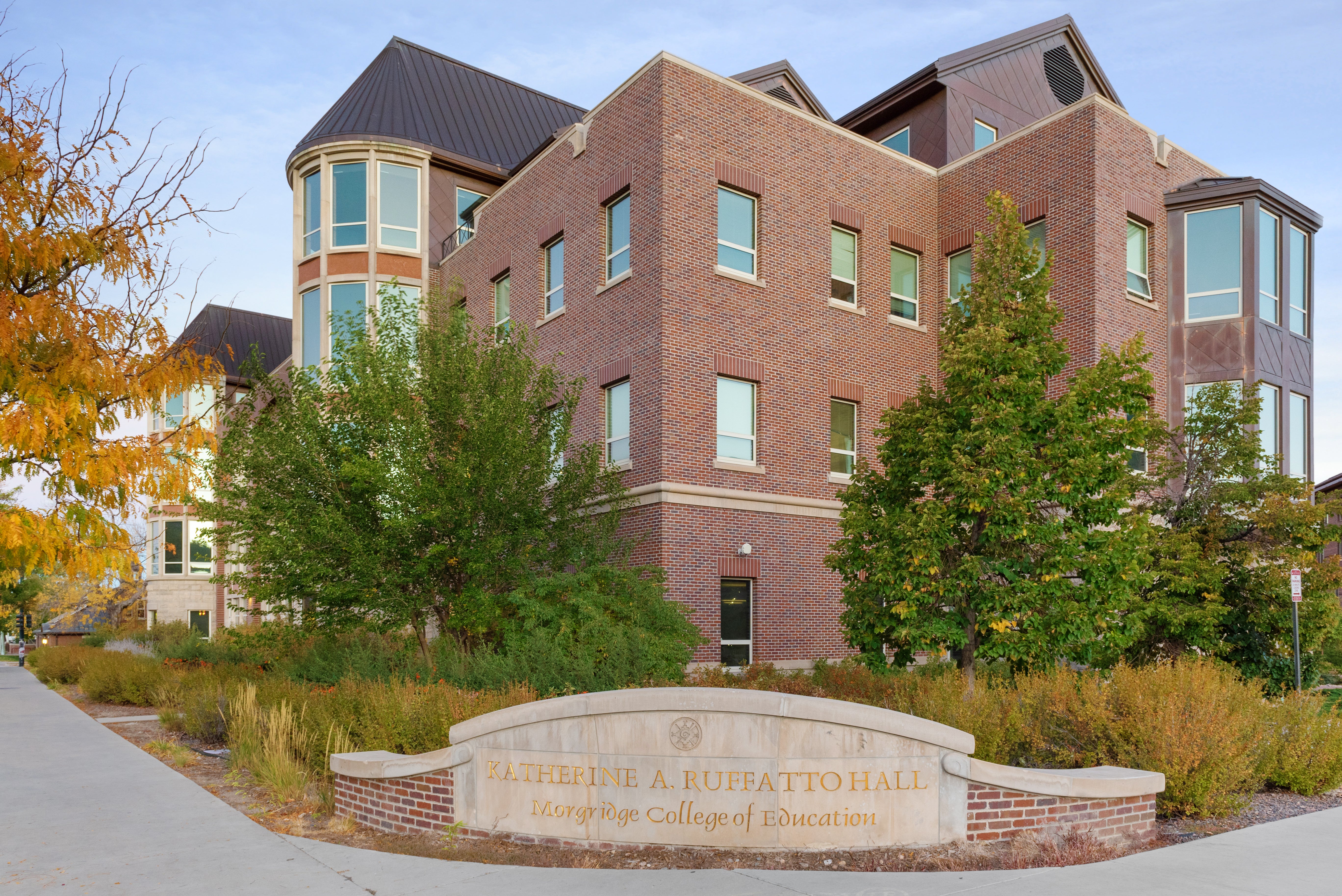
Shannon Stark Guss
Senior Research Associate
What I do
I am a Senior Research Associate at the Marsico Institute for Early Learning. I currently support a project developing digital math learning activities with embedded assessment. I also support work on the continued improvement of a professional development tool – the Learning and Teaching with Learning Trajectories [LT]2 website. As part of the STEMIE team, I support the continued development and use of learning trajectories in areas of Science, Technology (Computational Thinking) and Engineering.
Specializations
Measure development
Data analysis and visualization
Research methods
Classroom observation
Child assessment
Data use, Continuous improvement
Professional Biography
Dr. Shannon Stark Guss began her career in ECE in 2004 working with families of children in Head Start and Early Head Start, later moving into parent education positions with Parents as Teachers. Prior to coming to the University of Denver, she was part of the local evaluation team for a national study of early childhood centers, which initiated her interest and expertise in classroom observation and child assessments. Dr. Guss moved from data collection to data analysis, and eventually into leadership roles managing a team that collected and reported data on over 90 classroom observations and 98 classroom observations and 500 child assessments per year. Collaboration with teachers around data inspired the development of a set of measures capturing the extent to which early childhood teachers, families, and administrators use data, as well as variations of supports for data use in early childhood settings.
After joining the Marsico Institute for Early Learning, she extended her background in measure development to digital learning games within the frameworks of the Clements and Sarama learning trajectories approach through a Post Doctoral Research position. This work led to training and experience with grant writing – contributing to successful grant applications to the Institute of Education Sciences and the National Science Foundation.
Degree(s)
Ph.D. Educational Psychology (specialization in Research, Evaluation, Measurement, and Statistics; cognate focus in Human Development and Family Sciences) 2019
Research
Areas of Research
Early math
Early STEM
Learning Trajectories
Digital learning activities
Early childhood school readiness
Infant and toddler caregiving
Early childhood adversity and resilience
Featured Publications
Guss, S. S., Clements, D. H., Sharifnia, E., Sarama, J., Holland, A., Lim, C.-I., & Vinh, M. (2024). Designing Inclusive Computational Thinking Learning Trajectories for the Youngest Learners. Education Sciences, 14(7), Article 7. https://doi.org/10.3390/educsci14070733
Clements, D. H., Guss, S. S., Sarama, J., & Alvarez-Vargas, D. (2024). Best of Both Worlds: Developing an Innovative, Integrated, Intelligent, and Interactive System of Technologies Supporting In-Person and Digital Experiences for Early Mathematics. Computers in the Schools, 0(0), 1–20. https://doi.org/10.1080/07380569.2024.2410903
Clements, D. H., Guss, S. S., & Sarama, J. (2024). Implications of Mathematics Learning Trajectories for Science Education. In H. Jin, D. Yan, & J. Krajcik (Eds.), Handbook of Research on Science Learning Progressions. Routledge.
Guss, S. S., Lim, C.-I., Clements, D. H., Sharifnia, E. B., Holland, A. L., Vinh, M., & Sarama, J. (2024). Building Learning Trajectories for Intentional, Inclusive, and Individualized Instructional Experiences in STEM. Education Sciences, 14(1), 8. https://doi.org/10.3390/educsci14010008
Iruka, I. U., Kainz, K., Kuhn, L., Yazejian, N., Jackson, B., Niño, S., Tokarz, S., & Guss, S. (2022). Early childhood program ethnic composition and associations with quality and children’s language and social-emotional development. Early Education and Development.
Clements, D. H., Guss, S. S., & Sarama, J. (2022). Challenging but achievable math for young children: Learning and teaching with learning trajectories. Mathematics Teacher: Learning and Teaching PK-12, 115(7), 486-475. https://doi.org/10.5951/MTLT.2021.0252
Sarama, J., Clements, D. H., & Guss, S. S. (2021). Longitudinal evaluation of a scale-up model for professional development in early mathematics. In S. Dunekacke, A. Jegodtka, T. Koinzer, K. Eilerts, & L. Jenßen (Eds.), Early Childhood Teachers‘ Professional Competence in Mathematics. Routledge.
Jeon, S., Kwon, K., Guss, S.S., Horm, D. (2020). Profiles of family engagement in home- and center-based Early Head Start Programs: Associations with child outcomes and parenting skills. Early Childhood Research Quarterly.
Stark Guss, S. (2019). Refinement of a Measure of Data Use Practices [Ph.D., Oklahoma State University]. Retrieved from https://www.proquest.com/docview/2410798739/abstract/378E8B2CF7804E56PQ/1
Guss, S. S., Morris, A. S., Bosler, C., Castle, S. L., Hays-Grudo, J., Horm, D. M., & Treat, A. (2018). Parents’ adverse childhood experiences and current relationships with their young children: The role of executive function. Early Child Development and Care, 1-11. https://doi.org/10.1080/03004430.2018.1513921
Guss, S. S., Jones Harden, B., Stein, A., Yazejian, N., & Forestieri, N. (2016). Associations of Adversity to Indicators of Child Well Being in a High Quality Early Education Context. NHSA Dialog, 18(4). Retrieved from https://journals.uncc.edu/dialog/article/view/407
Guss, S. S., Jones Harden, B., Yazejian, N., Weeden, S., & Ladner, J. (2016). Addressing Adversity to Support Family and Child Well Being. NHSA Dialog, 18(4). Retrieved from https://journals.uncc.edu/dialog/article/view/551
Guss, S., (2016) Interpreting Assessment Data. In D. Couchenour & J. K. Chrisman (Eds.) The SAGE Encyclopedia of Contemporary Early Childhood Education. Thousand Oaks California: SAGE.
Guss, S., Horm, D. M., Lang, E., Krehbiel, S. M., Petty, J., Austin, K., Bergren, C., Brown, A., Holloway, S. (2013). Using classroom quality assessment to inform teacher decisions. Young Children, 68(3), 16-20.
Performances
Guss, S. S., Mulcahy, C., Clements, D. H., Sarama, J., & Day-Hess, C. A. (2024). Cluster Analysis of Early Math Assessment Items. American Educational Research Association.
Sharifnia, E., Guss, S.G. What’s STEM Got to Do with It: Effective Pedagogy in Inclusive Settings. Colorado State Early Childhood Special Education Conference. February 29, 2024.
Laurin, D., Guss, S.S., Horm, D. Beyond the parent-infant dyad: How infants shape educators’ behaviors. Paper symposium. Society for Research in Child Development (SCRCD) Biennial Meeting 2023. March 23-25, 2023
Clements, D., Sarama, J., Day-Hess, C., Guss, S.S. NSF DRK-12 PI Meeting, Washington, DC, June 13-16, 2021. Learning Trajectories as a Complete Early Mathematics Intervention: Achieving Efficacies of Economies at Scale.
Guss, S.S., Clements, D.H., Sarama, J., Day-Hess, C. Explorations of theoretical and empirical congruence in a measure of early math, SRCD Biennial Meeting 2021. April 8-9, 2021.
Sarama, J., Clements, D., Day-Hess, C., Wolfe, C., Guss, S.S. Development of a Measure of Early Mathematics Achievement based on Learning Trajectories, AERA Annual Meeting 2021. Virtual. April 9-12, 2021.
Chance, B., Guss, S.S., Sarama, J., Clements, D. Effects of a Math Intervention on Dual Language Learners and Children with Disabilities. AERA Annual Meeting 2021. Virtual. April 9-12, 2021.
Walker, D., Guerrero, G., Bigelow, K., Guss, S.S., Horm, D., Roehr, K., Sweeney, M. Quality Early Learning Programs as a Platform for Building Capacity to Support Language Learning and Address the Word Gap for Infants and Young Children. ACF’s National Research Conference in Early Childhood (NRCEC) 2020. NRCEC.net. December 1, 2020.
Guss, S.S. Cultivating Resilience: Prioritizing Self-Care to Cope with Family Adversity. National Resource Center for Youth Services. Webinar, November 11, 2019.
Guss, S.S. & Hays Grudo, J. Adversity and low-income parents’ relationships with their young children: The role of executive function. Haruv USA Conference on Child Maltreatment, Tulsa, OK, May 20, 2019.
Guss, S.S., Laurin, D.E., Horm, D.M. Diapering differences: Differences in quality of experience for African American infants and toddlers. EECERA 2018 Annual Meeting, Budapest, Hungary, August 30, 2018.
Laurin, D., Guss, S.S., Horm, D.M. Child well-being and involvement during diapering routines. NRCEC 2018 Annual Meeting, Arlington, VA, July 26, 2018.
Guss, S., Stein, A., & Ford, T. Measuring data use in classrooms serving young children. AERA 2018 Annual Meeting, New York City, April 13-17, 2018.
Kainz, K., Yazejian, N., Hong, S., Stein, A., Connors, M., Guss, S., & Horm, D. A model for practitioner-researcher partnerships that foster professional learning from research evidence in early childhood education settings. Presented at the Society for Research on Educational Effectiveness (SREE), Washington, DC, March 3, 2018.
Guss, S., Morris, A., Hays-Grudo, J., Bosler, C., Horm, D., Castle, S., Adversity and low-income parents’ relationships with their young children: The role of executive function. SRCD Biennial Meeting, Austin, TX, April 6-8, 2017.
Guss, S., Horm, D., Castle, S., Lake, V., Reflective supervision supporting classroom quality for infants and toddlers: Differences by field of degree. SRCD Biennial Meeting, Austin, TX, April 6-8, 2017.
Cannon, E., Guss, S., The short-term impacts of psychological stress and trauma on young children’s socioemotional and language development. [Paper symposium: Child Health and Developmental Outcomes in the Context of Parental Trauma: Jones Harden & Boyce, C.] SRCD Biennial Meeting, Austin, TX, April 6-8, 2017.
Horm, D., Castle, S., Guss, S., Applied research on Oklahoma’s early childhood education programs. The Oklahoma Partnership for School Readiness Foundation, Oklahoma City, OK, February 9, 2017.
Guss, S. & Ladner, J. Data knows best. Head Start Region VI Annual Conference, Moving Forward: Head Start Partnerships, Oklahoma City, OK, October 19, 2016.
Guss, S., Jones-Harden, B., Stein, A., Yazejian, N., Forestieri, N. Relationship of adversity to indicators of child well-being in a high quality early education context. ACF’s National Research Conference on Early Childhood, Washington, DC, July 11-13, 2016.
Bosler, C., Hays-Grudo, J., Teague, T. K., Castle, S., Guss, S., Miller-Cribbs, J., Horm, D., & Morris, A. Exploring the intergenerational transmission of risk: Parent experiences, parent-child relationship, and child cortisol patterns. ACF's National Research Conference on Early Childhood, Washington DC, July 11, 2016.
Schumacher, K., Castle, S., Schaefer, S., Miller-Cribbs, J., Hays-Grudo, J., Teague, T. K., Guss, S., & Horm, D. Family and neighborhood level risks: Associations with children's development.. ACF's National Research Conference on Early Childhood, Washington DV, July 11, 2016.
Bosler, C., Hays-Grudo, J., Teague, T. K., Castle, S., Guss, S., Miller-Cribbs, J., Horm, D., & Morris, A. Intergenerational transmission of risk: Parents' ACEs and young children's regulation of stress. 15th World Congress of the World Association for Infant Mental Health, Prague, Czech Republic, May 31, 2016.
Guss, S., Stein, A., Mangus, B., Sweet-Darter, M. Measuring Data Utilization in the Educare Schools. Educare Learning Network (ELN) Meeting, Atlanta, GA, April 6, 2016.
Guss, S., Long, M., Neveu, H. Understanding and Managing Toxic Stress. Southern Early Childhood Association (SECA) Conference, Tulsa, OK, February 12, 2016.
D., Laurin, Guss, S. Slowing Down for Sleep: A Pikler Approach to Respectful Routines. Southern Early Childhood Association (SECA) Conference, Tulsa, OK, February 11, 2016.
Key Projects
Integrated, Intelligent, and Interactive Technologies Building Young Children’s Math Along Learning Trajectories
Funded by the Institute of Education Sciences, this project is developing and evaluating an early learning math platform using the successful Curriculum Research Framework. The digital platform (website and app) that integrates colorful, engaging mathematics games. The backbone of Bajillions is an integration of all learning trajectory levels. Each level on the Path has one or more games that both assess and provide fun, purposeful practice of key underpinning concepts and skills. The Bajillions system guides children by dynamically and automatically progressing them to an earlier level game, later level game, or more practice on a current level game, according to what they need. Meanwhile, teachers (or parents/guardians) receive recommendations for in-person activities and other development resources based on children’s data. Bajillions will be a rare technology product that promotes face-to-face activities as much as digital ones.
STEM Innovation for Inclusion in Early Education (STEMI2E2) Center
The Marsico Institute is part of the national STEM Innovation for Inclusion in Early Education (STEMI2E2) Center in partnership with the Frank Porter Graham Child Development Institute at the University of North Carolina at Chapel Hill. The Center is funded by the Office of Special Education Programs, US Department of Education. The work of the Center is focused on developing and enhancing the knowledge base for engagement in STEM learning opportunities for young children with disabilities, implementing high-quality technical assistance and professional development to increase engagement for young children with disabilities in STEM opportunities, and engaging partners and stakeholders from diverse disciplines and industry in work to increase the inclusion of young children with disabilities in early high-quality STEM learning experiences.
Learning and Teaching with Learning Trajectories [LT]2
Learning and Teaching with Learning Trajectories [LT]2 is a web-based tool for early childhood educators to learn about how children think and learn about mathematics and how to teach mathematics to young children (birth to age 8). The website allows teachers to access information about children's development of math, view short video clips of classroom instruction, and explore a variety of resources including research-based instructional activities and teaching strategies. Funding from the Bill and Melinda Gates Foundation supported the development of children’s software and other platform improvements. Additional funding from the Heising-Simons Foundation supported the initial development of the website, the addition of important standards, assessments, and infant/toddler content to the site. Work to improve accessibility features and activities focused on accommodations for children with disabilities is ongoing.
Educare Evaluation, Tulsa LEP
Designed to document the features of Educare and how implementation of the model contributes to program quality and links to child and family outcomes, twenty-one local evaluation partners (LEPs) collaborate with their local school to collect data. The results of the National Evaluation allow the Educare Learning Network (ELN) to describe and better understand the progress children and families are making in Educare programs, considering unique local features and elements of the larger community context. The Educare National Evaluation is funded by the Buffett Early Childhood Fund and the George Kaiser Family Foundation. Educare researchers engage in monthly community of practice meetings, collaborate on cross-site initiatives, and meet annually in Chapel Hill. The project is overseen by the Frank Porter Graham Child Development Institute at the University of North Carolina at Chapel Hill (FPG) as the National Evaluation Partner (NEP) for the ELN. FPG leads the Educare National Evaluation, including coordinating data collection by LEPs, developing protocols, managing and analyzing data, and disseminating results within and outside the ELN.


